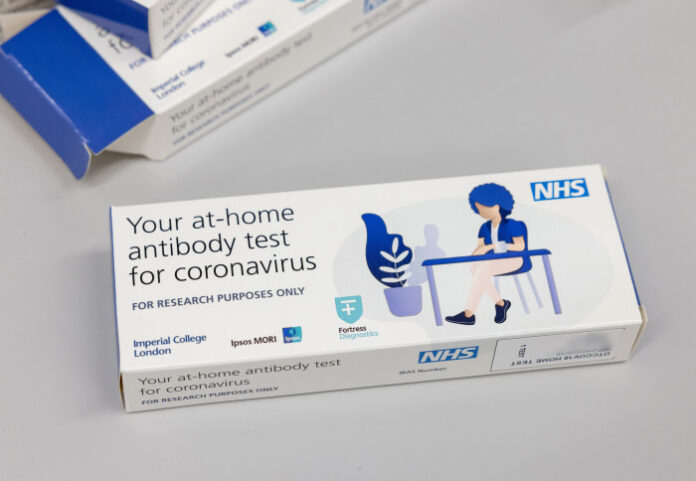A study of 155,000 people has shown that around 14% of England’s population has evidence of antibodies against the coronavirus.
The Imperial College London-led REACT study also shows very strong vaccine uptake in England.
Antibodies are protective immune molecules produced by the body following infection and also after vaccination. Studying how many people have them can therefore reveal who has been exposed to the virus in the past while also indicating people’s antibody responses to the vaccine. However it’s unclear to what extent having antibodies, either from infection or vaccination, offers protection from getting COVID-19.
The research used finger-prick tests carried out at home between 26 January to 8th February to detect coronavirus antibodies, revealing that people in London and ethnic minorities have the highest rates of past infection.
The study also reveals important insights into vaccination with 18,000 of the 155,000 study participants having had at least one dose of a coronavirus vaccine, the majority of these being Pfizer/BioNTech. 92% of people surveyed as part of the research said they’d either had a vaccine or would take one.
Of those who had been vaccinated, overall 91% had antibodies after two doses of the Pfizer/BioNTech vaccine, rising to 95.5% in people under 60. The figure was slightly lower in people aged 80 and above at 88%.
The study also found a high proportion of people under 30 had antibodies after a single dose, with 94.7% testing positive after 3 weeks. However this figure drops steadily with age and people aged 80 plus had the lowest rates of positive tests at 34.7%.
Professor Helen Ward, Professor of Public Health at Imperial, said: “It is very encouraging to see that uptake and confidence in the vaccination programme is so high, and that most people develop a detectable antibody response after one dose. Our findings suggest that it is very important for people to take up the second dose when it is offered.
“We know that some groups have concerns about the vaccine, including some people at increased risk from COVID-19, so it is really important that they have opportunities to discuss these and find out more.”







